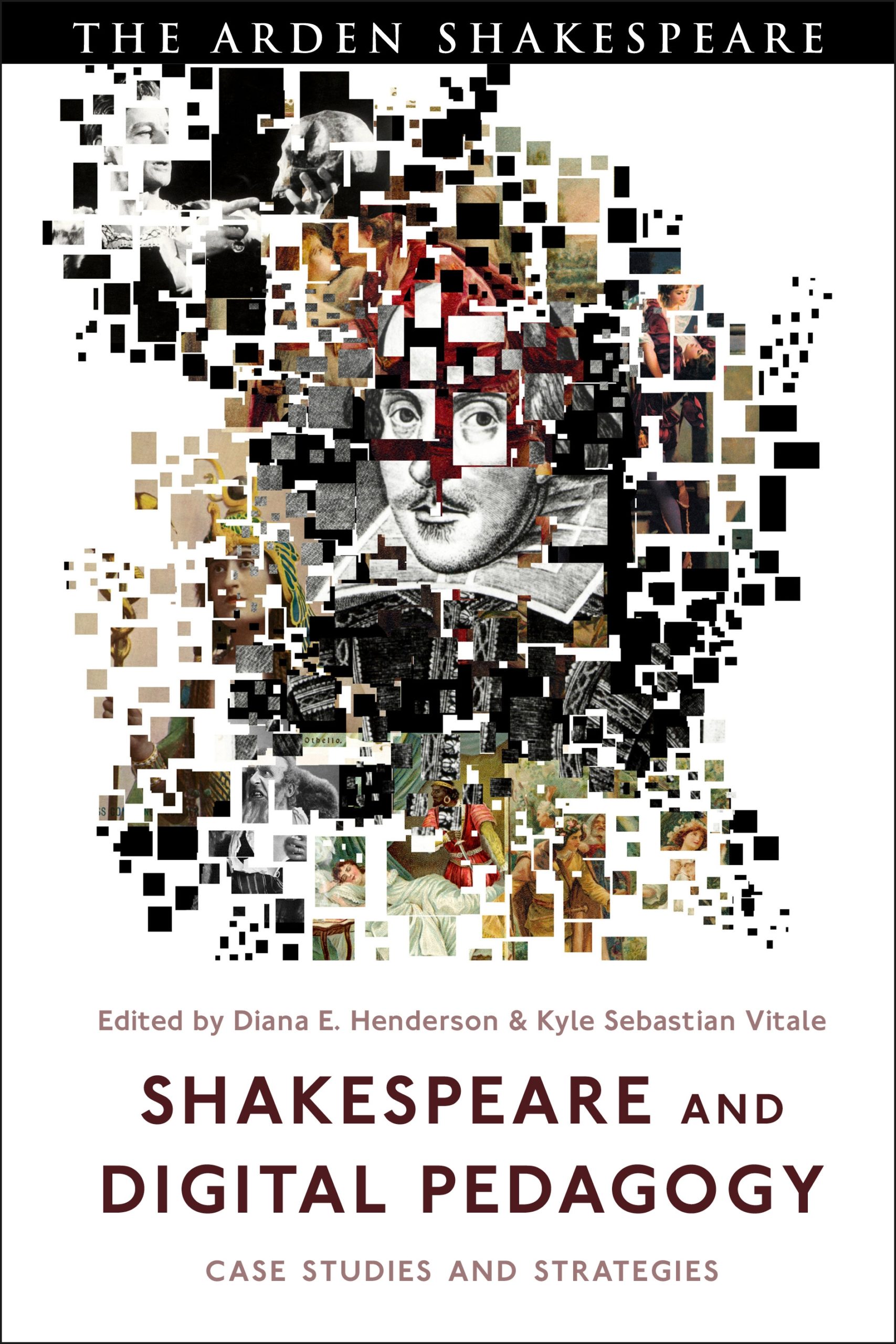Q&A with Kyle Sebastian Vitale, Co-editor of Shakespeare and Digital Pedagogy: Case Studies and Strategies

Welcome to HxA’s What We’re Reading series, where we chat with authors about their thought-provoking work on issues around viewpoint diversity, constructive disagreement, and open inquiry.
Today’s exchange is with HxA’s Director of Programs, Kyle Vitale, co-editor of Shakespeare and Digital Pedagogy: Case Studies and Strategies. Shakespeare and Digital Pedagogy examines innovations, traditions, and gaps in the 21st century Shakespeare classroom.
Q. Kyle, can you give us the one-paragraph elevator version of your book?
A. Sure! We’ve seen an explosion of new digital approaches to teaching Shakespeare recently — virtual archives, annotation tools, cool maps where characters live, and much more — so we wanted to illustrate the current state of the field while centralizing some of the best resources for readers to discover and adopt.
Readers will find an international collection of 15 representative essays where authors describe how their tools were designed and how they can be used. The book is intended for international college and K-12 classrooms, and has some fun resources for general Shakespeare scholars and folks in the digital humanities too.
Q. Your introduction suggests the pandemic really shifted the book towards bigger issues. How?
A. Well, the original idea was to fill a gap in the literature: no one had attempted to capture the state of the wild digital west in Shakespeare teaching. But between the pandemic and numerous politically polarizing national events, the writing really began to change. It quickly became a place to explore challenges in the virtual classroom, engage issues of race on campus, and explore what the university might look like in the future.
Q. What would you tell interested readers at Heterodox Academy to look out for in the book?
A. There’s some great viewpoint diversity and disagreement around hot debates in the humanities right now: is lecture or active learning more effective? Who gets to determine learning outcomes and how they’re measured or achieved? To what extent should digital technology be a central component of the college classroom?
But I also find the blind spots quite useful for considering our work. Religion is virtually non-existent in the book. Although this might simply reflect the crop of contributions we received, I think it actually represents the field’s slowness to understand religion as anything more than a historical peculiarity explored in a few minor sub-fields of English.
As a Shakespeare scholar of faith (and I am hardly alone in that), I believe the field could do much more to accept and explore faith as a universal practice and a real, personal element of the worlds Shakespeare created.
I believe the field is stuck in narrow conceptions of diversity. Inviting personal faith as a valuable and relevant dimension of our conversation could help scholars think about Shakespeare’s characters more fruitfully.
Q. What is at stake here?
A. Much, but perhaps most urgently: technology is uncontrolled in higher education right now — ed tech vendors constantly push new products, the pandemic is forcing new reliance on digital methods, and students are living their lives more and more online. We need to be thoughtful about what we’re allowing into our classrooms and what might help re-enliven versus what might help remove some of the dead horses we keep beating in Shakespeare studies.
Q. What do you hope HxA readers take away from the book?
A. I hope our readers find exciting new tools for their classrooms, a renewed love for the Bard, and some fresh takes on big questions we’re all always trying to answer in the classroom today. Our contributors are all earnest, thoughtful teachers who prioritize their students’ learning and wellness, and we can learn much from them.
Shakespeare and Digital Pedagogy: Case Studies and Strategies is co-edited by Diana E. Henderson and Kyle Sebastian Vitale. It is available on Thursday, Dec 16, 2022 from The Arden Shakespeare.
Related Announcements
Your generosity supports our non-partisan efforts to advance the principles of open inquiry, viewpoint diversity, and constructive disagreement to improve higher education and academic research.